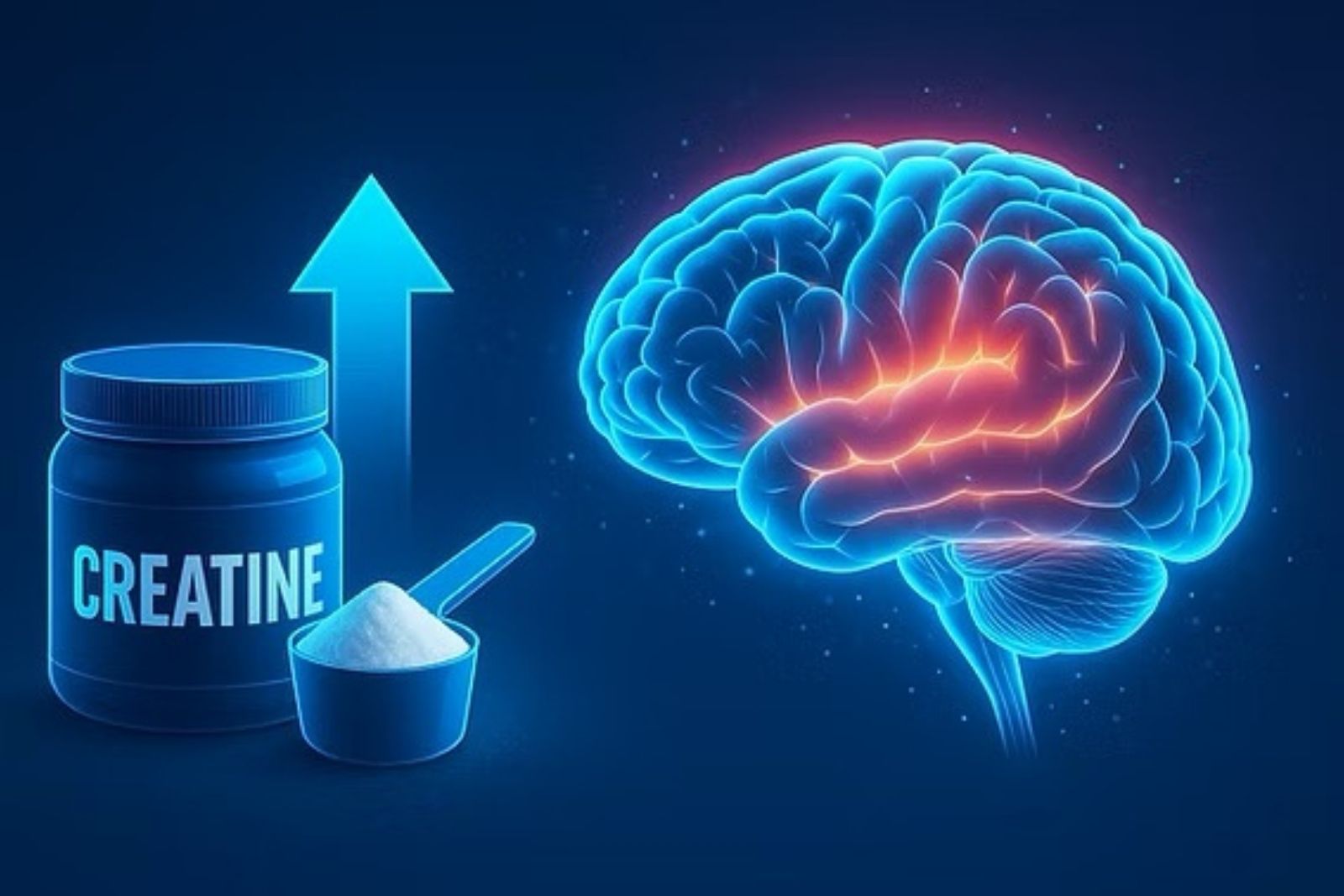INTRODUCTION
Your brain is the command center for the rest of your body. If you lost the ability to use your left arm (for example), you would still survive. However, you cannot afford to compromise the function of your brain and neurological system. So it makes good sense to do everything you can to support optimal functioning of your neuronal cells (they make up your brain, like bricks in a wall).
PS: if you want the podcast version of this article, it’s right here: Brain Health and Creatine: Exploring the Connection
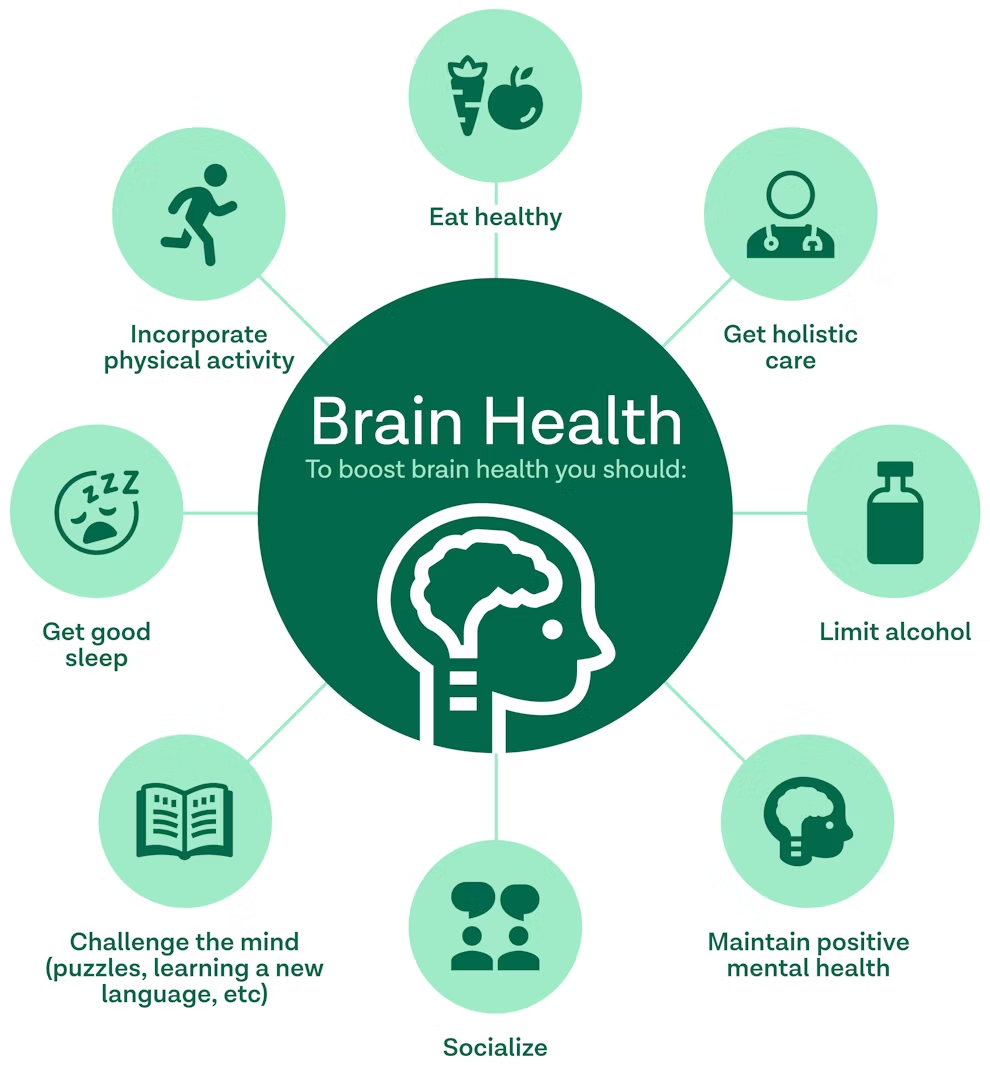
Image Link: Oak Street Health
NEUROLOGICAL SUPPORT
I have covered several interventions in past articles that help support brain function (see some of my articles below), and I would suggest giving these a good read:
ARTICLE LINK: Nutritional Support for Traumatic Brain Injury
ARTICLE LINK: Ketogenic Diets and Brain Cancer
ARTICLE LINK: Multiple Sclerosis, Neurological Support, and Vitamin D3
ARTICLE LINK: Cold Water Immersion: Is It Worth Doing?
ARTICLE LINK: Mitochondria and Relationships To Health
ARTICLE LINK: Time Restricted Feeding: A Potential Protocol for Managing Dementia
ARTICLE LINK: Anti-Inflammatory Diets and Depression
ARTICLE LINK: Dementia: Support With Sauna Therapy
ARTICLE LINK: Alzheimer’s Disease: Management With Exercise
ARTICLE LINK: Improving Sleep Quality and Duration
To keep it simple, you need Exercise, Nutrition, and Recovery protocols to protect your noggin. Make no mistake either; these three protocols MATTER, and they matter equally. Today, however, I will be exploring how a substance known as creatine, a derivative (made from) of amino acids, can support your brain health and function.

Image Link: Noah’s Nutrition
WHAT IS CREATINE?
Creatine is a substance that is made from methionine, arginine, and glycine (amino acids).1 These amino acids are readily found in animal protein sources.2 About half of your daily need for creatine comes from these food sources (more on the other half below).4 Be sure to learn more about amino acids in my article below:
ARTICLE LINK: Essential Amino Acids and Why They Matter
Believe it or not, your body also makes creatine in your liver, kidneys, pancreas, and testicles (make sure those organs stay healthy!).1(2),3 Interestingly, your brain makes creatine too (hint- it must be pretty important there). This is all good stuff, but you might be asking WHY creatine is important?
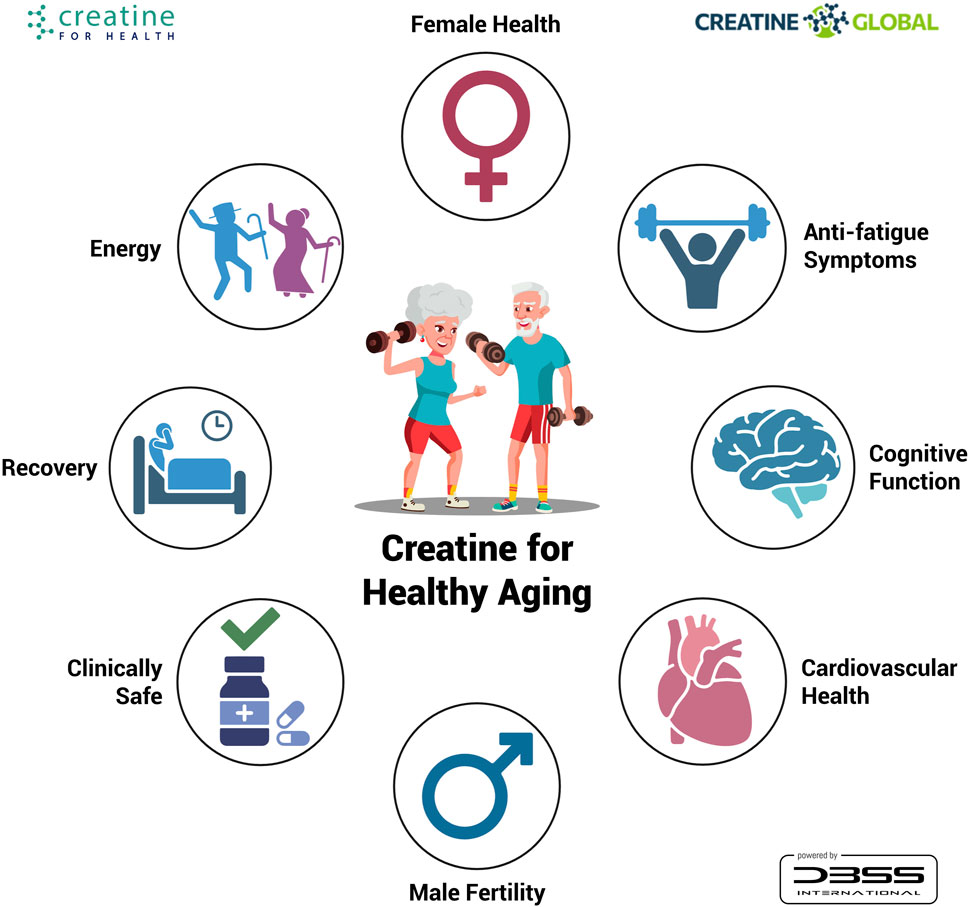
Image Link: Frontiers
CREATINE FUNCTION
Simply put, creatine is like an “ingredient” that helps your cells make energy, so that YOU have energy to do things. Creatine enters your cells and work with mitochondria. Mitochondria, produce energy known as adenosine triphosphate (ATP)…in nerd-speak.3(5) If you’d like to learn more about mitochondria, check out my article below:
ARTICLE LINK: Mitochondria and Relationships to Health
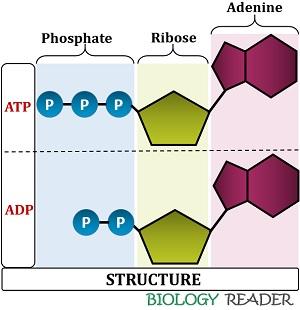
Image Link: Biology Reader
MORE ON ATP (NERDY SECTION)
ATP is the compound that gives our cells energy to do things. ATP is made of a few items; adenine and a ribose sugar (making adenosine…the “A”) and 3 phosphates (aka TriPhosphate or the “TP”)…hence ATP.5(1)
As soon as your body uses ATP for energy, ATP loses a phosphate (P) and it turns to ADP (adenosine diphosphate); its missing one little phosphate group (look at the image above…see the 3 Ps in ATP and 2 Ps in ADP).5(1)
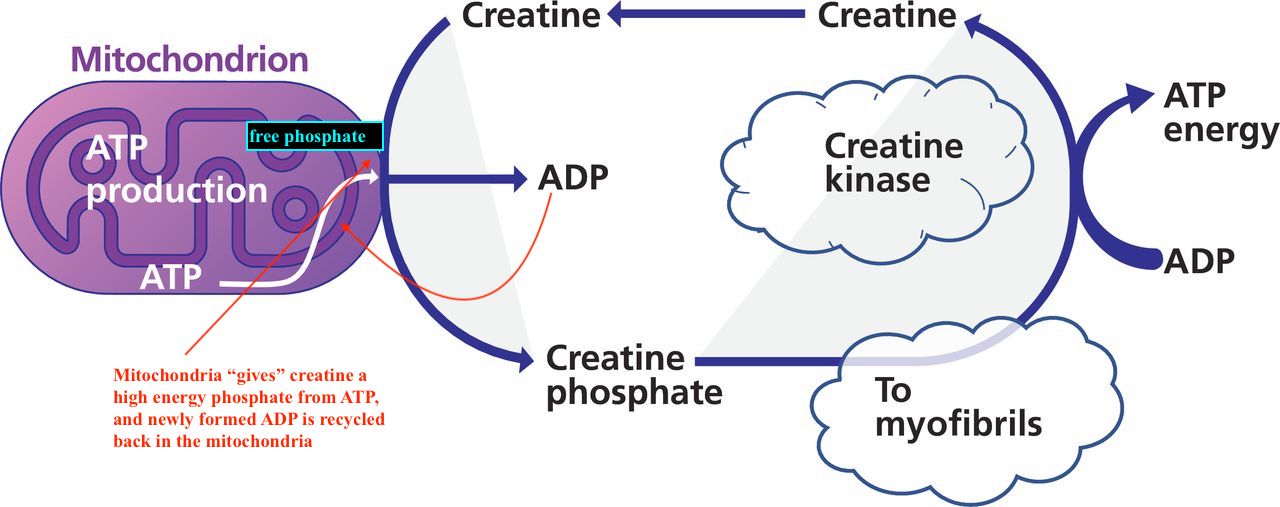
Image Link: BMJ Journals
NERD SECTION CONTINUED
You can’t get direct energy from ADP. Inside the mitochondria, however, ADP “connects” with a phosphate, and ATP is formed. This ATP then moves out of the mitochondria and goes where it is needed. However, this is a slower process. When you need energy immediately, this is where creatine comes to the rescue!
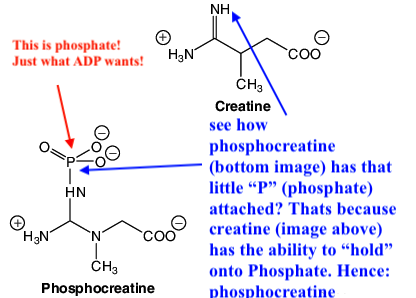
Image Link: ResearchGate
HOW CREATINE HELPS
Creatine has the ability to pop into the mitochondria to “grab” a high energy phosphate, and it acts like a dump truck, quickly carrying its load (the phosphate) to other spots in the cell which have really high energy demands.3(3)
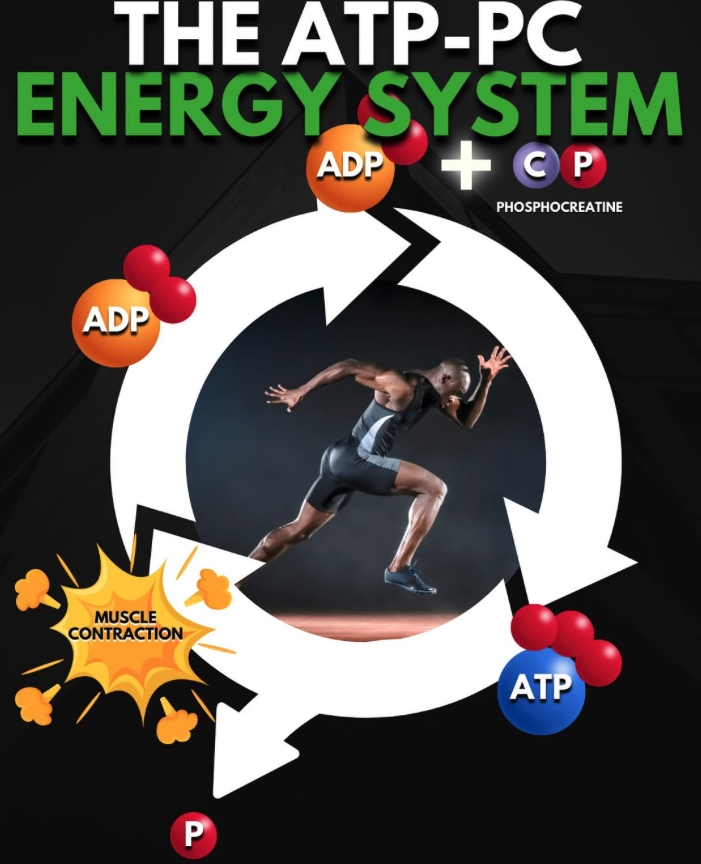
Image Link: Instagram
CREATINE MAKES ENERGY… FAST
As mentioned, the mitochondria can’t make ATP fast enough when you are going hard (lifting heavy, sprinting etc…); you might have 1 second worth of ATP available from mitochondria (not a lot).6
Creatine, however, can grab high energy phosphates from mitochondria and get them close to where they are needed, and they can do this quickly. Once they make it to their destination, they quickly react with ADP to make ATP.
This process can continue for about 7 seconds of very high and intense activity!4(2)
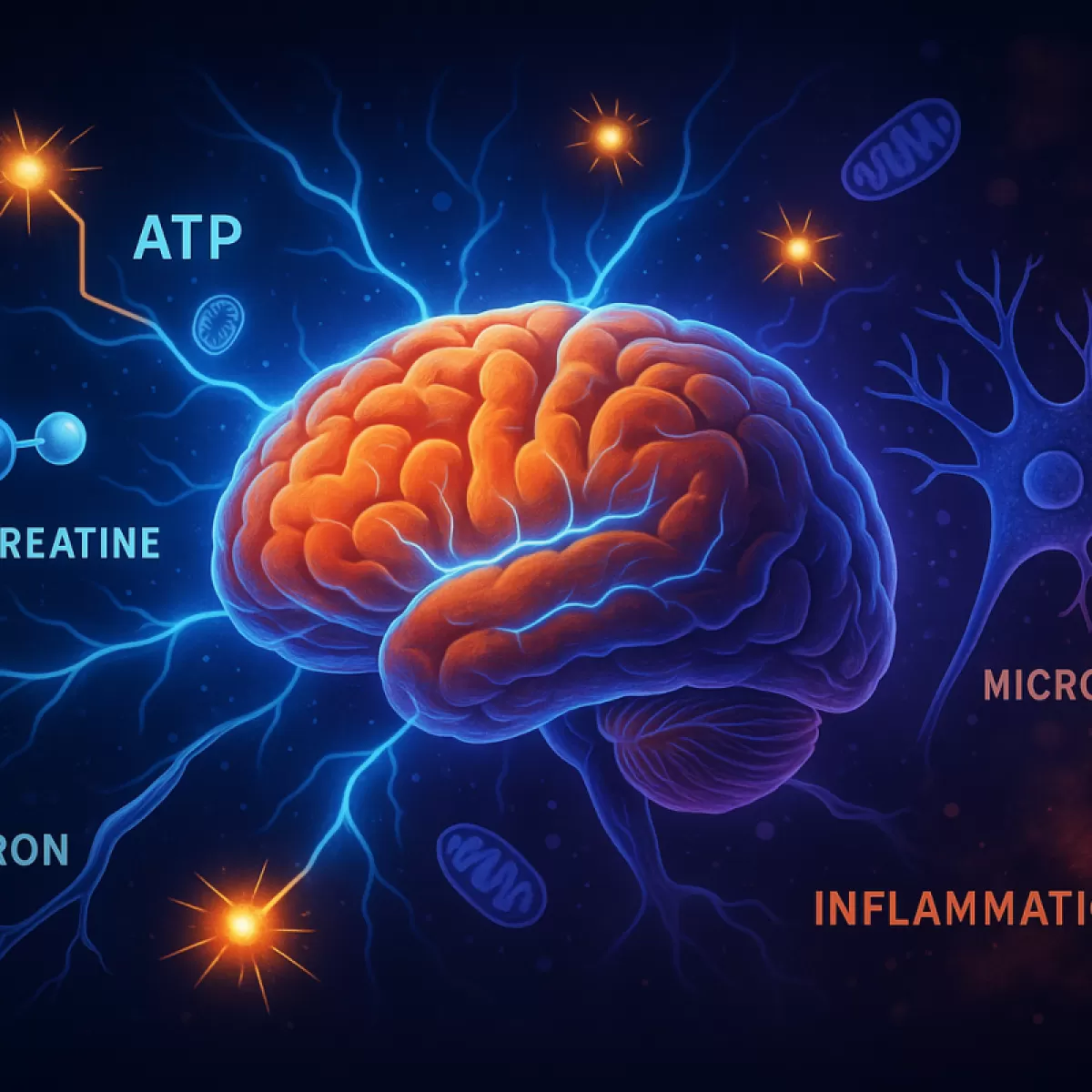
Image Link: Psychology Today
YOU MADE IT! HOW DOES CREATINE HELP THE BRAIN THEN?
I was really curious about this too of course. I could understand how muscles would require creatine/creatine phosphate during intense physical activity, but I was having difficulty seeing how the brain could experience similar “intense” situations. It’s not like your brain is doing push-ups or sprinting…?
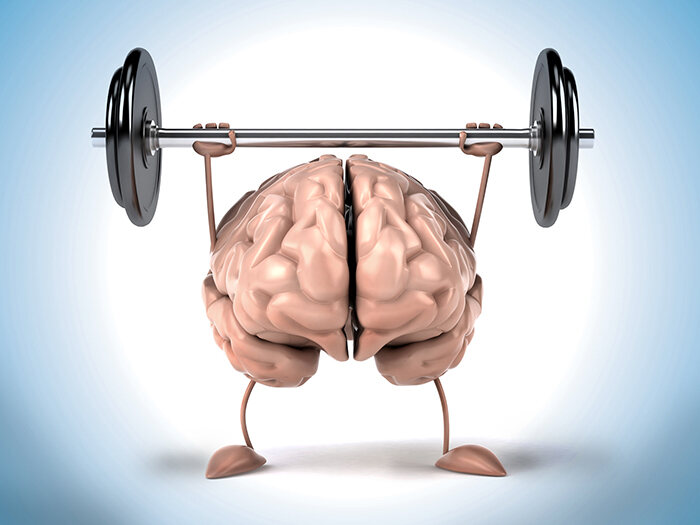
Image Link: SilverSneakers
WELL…THE BRAIN DOES EXPERIENCE ITS OWN FORMS OF STRESS
Creatine/creatine phosphate use in the brain might not be as obvious when compared to its use in muscles lifting a heavy weight or sprinting for your life. But, it turns out that the neurons (makes your brain like bricks make a wall) absolutely require creatine.
This starts to make sense when you are made aware that the brain represents just 2% of your total bodyweight, yet it consumes 20% of the energy you make each day!7 AND, up to 80% of the ATP made within the brain is used for neuronal firing.7(1) Here is another hint about creatine’s critical use in your noggin; the brain makes its own creatine, on site.1(2)
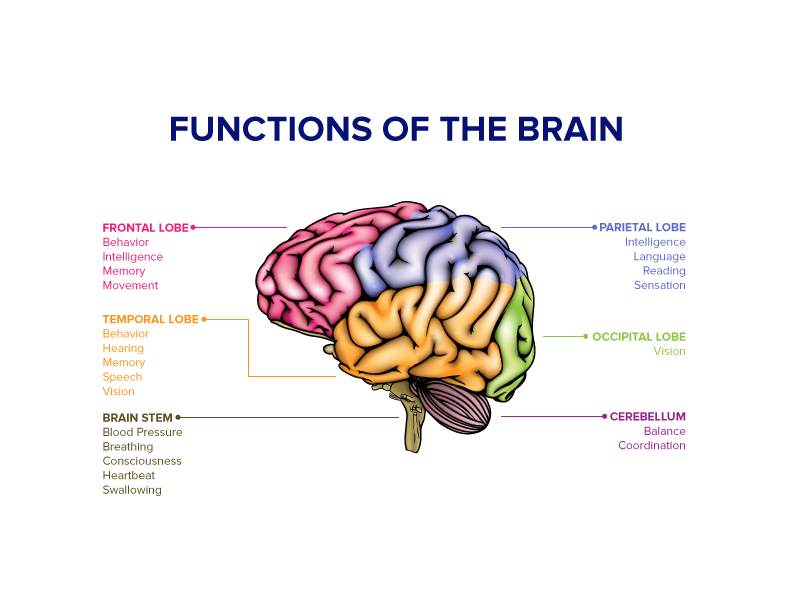
Image Link: Alisahl
GIVE ME EXAMPLES OF WHEN CREATINE COMES TO THE RESCUE
There are a few examples that many can relate to: sleep deprivation (i.e., from stress, or poor sleep habits), neurological diseases (i.e., traumatic brain injury), and mental health conditions (i.e., depression and generalized anxiety disorders).7(2)
All of these particular conditions drive increased creatine phosphate production.1(2) Of course, you have likely experienced one or more of these in the course of your life. And knowing that creatine can be helpful, the next question you might have is…how much do I take when my brain is under stress?

Image Link: GT Health
GETTING CREATINE IN THE BRAIN IS A LITTLE TRICKY
The bulk of creatine that gets consumed ends up going to skeletal muscle; this might be due to muscle’s lack of internal creatine production (unlike the brain), and that muscle has a lot creatine transporters (gets creatine from the blood into the muscle).8
The brain, on the other hand, has a lot less creatine transporters, as well as the genes that make these transporters (called SLC6A8 genes).1(2) Finally, the brain has its own creatine-producing “factory” which may also limit outside requirements of creatine.1(2) All is not lost, however. It is possible that when the brain comes under stress, it may begin accepting more creatine from food and supplementation.1(3)

Image Link: Eat Swim Win
ANY RESEARCH EXPLORING CREATINE AND BRAIN FUNCTION?
Before I start talking about supplementation, I want to be clear that you should always use a food-first approach when you are supporting your health. Supplements support food…not the other way around.
Moriarty et al.8 noted 11 studies that analyzed the levels between creatine supplementation and brain creatine levels. The study designs, however, were not consistent making it hard to draw definitive conclusions (i.e., creatine intake varied from 2-20 grams, some studies had healthy participants, while others had participants with health issues etc…).1(3) The good news from these studies is that generally speaking, brain creatine levels increased as high as 10%.8(2)
One particular study of interest was by Gordji‐Nejad et al.10 where the researchers induced sleep deprivation (awake for 24 hrs) in 15 healthy subjects in a double-blind, randomized, prospective with balanced cross-over design. Subjects were given a single dose 0.35 g/kg of creatine or a placebo. Before the test started, baseline measures (a battery of memory tests) were done after a normal night of sleep, and these same tests were conducted into the evening and morning the next day. This test was done over two nights separated by 5 days.10(2)
Gordji‐Nejad et al.10(10) demonstrated that sleep deprived individuals who took creatine vs placebo conditions experienced:
- increased brain creatine levels from supplementation (despite the brain making its own, suggesting “willingness” to pull creatine from the blood when under stress)
- reduced fatigue
- improved short term memory tasks
- improved reaction speed
- improved outcomes on cognitive tests
- positive effects that lasted up to 9 hours
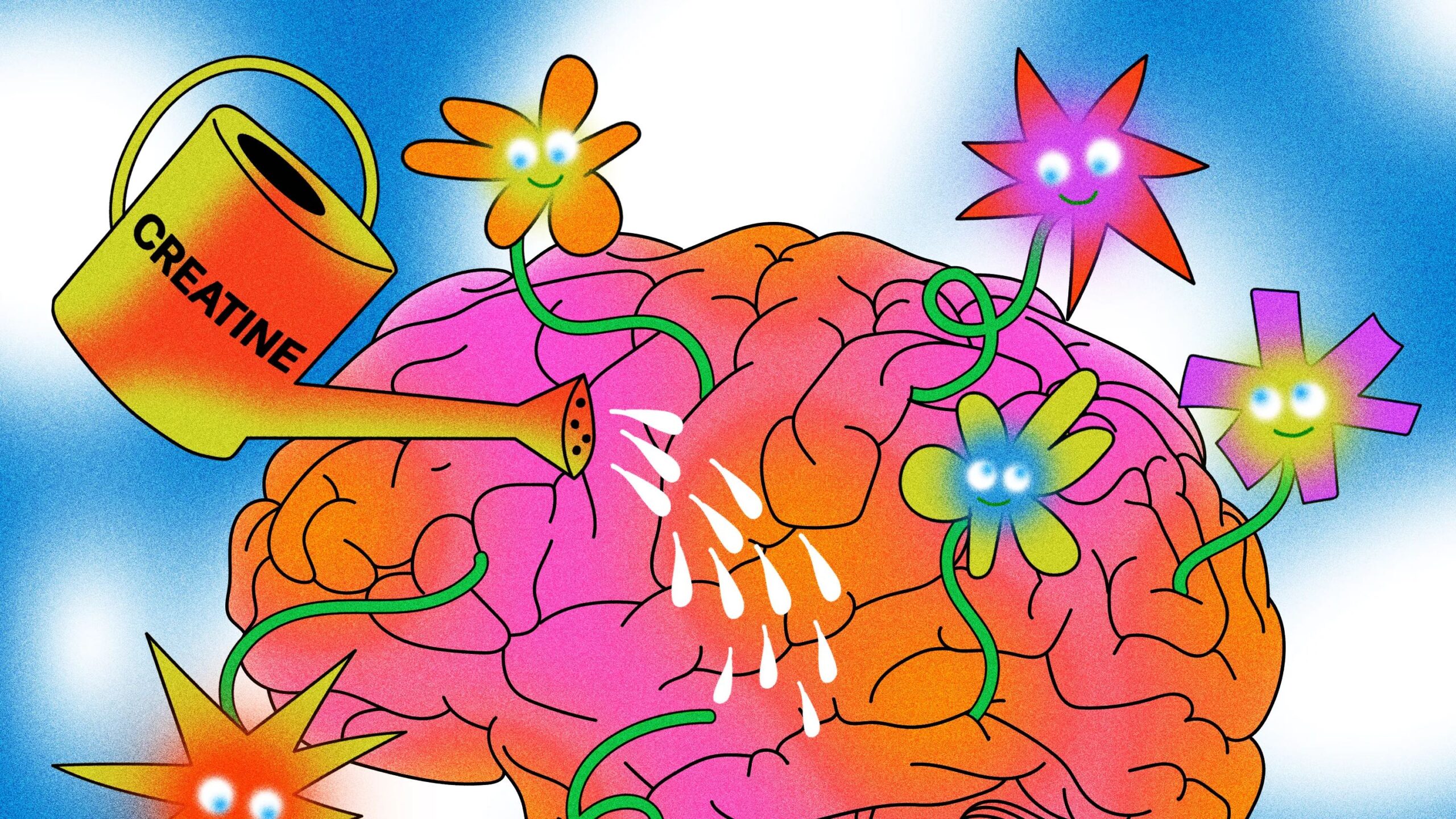
Image Link: GQ
HOW MUCH CREATINE FOR SUPPORTING BRAIN HEALTH?
Finally!
There appears to be a few options to help raise creatine levels in the brain. Candow et al.11 stated that creatine intake of 20 g/day, 0.3g/kg/day for about 7 days, or 4 g/day for several months are all options. There is also a relative dosing strategy (fancy way of using creatine based on bodyweight) of 0.1-0.14 g/kg bodyweight that could be used; a dosing approach also beneficial for bone health.11(105)
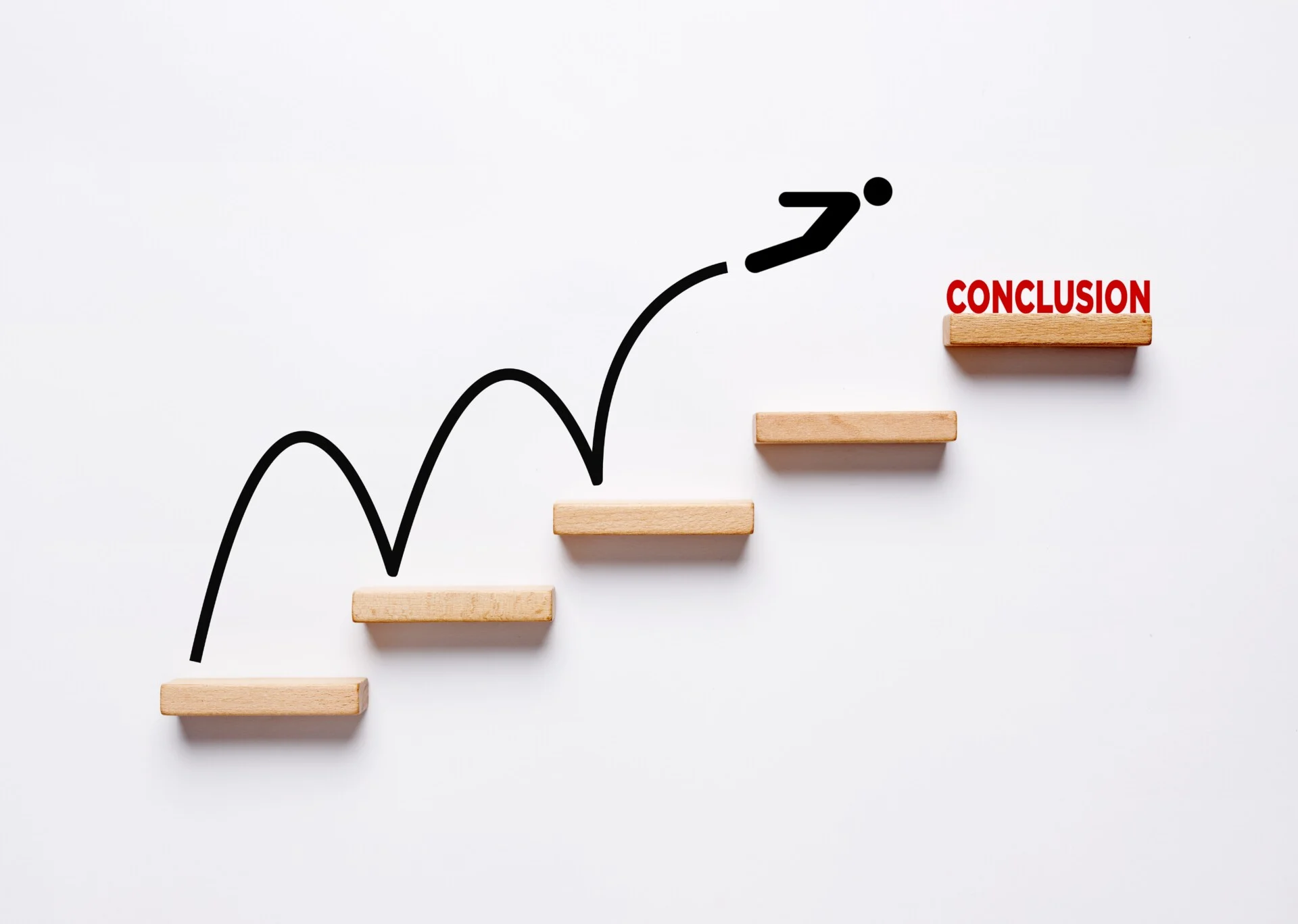
Image Link: Simply Psychology
CONCLUSIONS
You have made it through! And you learned a little about what creatine is, how it works, why it is important, and how much to take. And always remember, supporting your health happens when you embrace exercise, nutrition, and recovery protocols together!
References
1. Forbes SC, Cordingley DM, Cornish SM, et al. Effects of creatine supplementation on brain function and health.Nutrients. 2022;14(5):921. doi:10.3390/nu14050921.
2. Gropper SS, Smith JL, Carr, TP. Advanced nutrition and human metabolism. 7thBoston, MA: Cengage Learning. 2018.
3. Bonilla DA, Kreider RB, Stout JR, et al. Metabolic basis of creatine in health and disease: A bioinformatics-assisted review.Nutrients. 2021;13(4):1238. doi:10.3390/nu13041238.
4. Marshall RP, Droste JN, Giessing J, Kreider RB. Role of creatine supplementation in conditions involving mitochondrial dysfunction: A narrative review.Nutrients. 2022;14(3):529. doi:10.3390/nu14030529.
5. Dunn J, Grider MH. Physiology, Adenosine Triphosphate. Treasure Island (FL): StatPearls Publishing; https://www.ncbi.nlm.nih.gov/books/NBK553175/. Updated Feb 13, 2023. Accessed October 20, 2025.
6. Hultman E, Greenhaff PL. Skeletal muscle energy metabolism and fatigue during intense exercise in man.Sci Prog. 1991;75(298):361-370.
7. Balasubramanian V. Brain power.Proc Natl Acad Sci U S A. 2021;118(32):1-3. doi:10.1073/pnas.2107022118.
8. Ostojic SM. Modulation of CT1 Function: From Klotho Protein to Ammonia and Beyond.Front Nutr. 2021;8:660021. doi:10.3389/fnut.2021.660021.
9. Moriarty T, Bourbeau K, Dorman K, et al. Dose-response of creatine supplementation on cognitive function in healthy young adults.Brain Sci. 2023;13(9):1-10. doi:10.3390/brainsci13091276.
10. Gordji-Nejad, A., Matusch, A., Kleedörfer, S.et al.Single dose creatine improves cognitive performance and induces changes in cerebral high energy phosphates during sleep deprivation. Sci Rep. 2024;14:1-15. doi:https://doi.org/10.1038/s41598-024-54249-9.
11. Candow DG, Ostogic SM, Forbes SC, Antonio J. Does one dose of creatine supplementation fit all? Adv Exerc Health Sci.2024;1(2):99-107. doi:https://doi.org/10.1016/j.aehs.2024.05.002.
-Michael McIsaac

